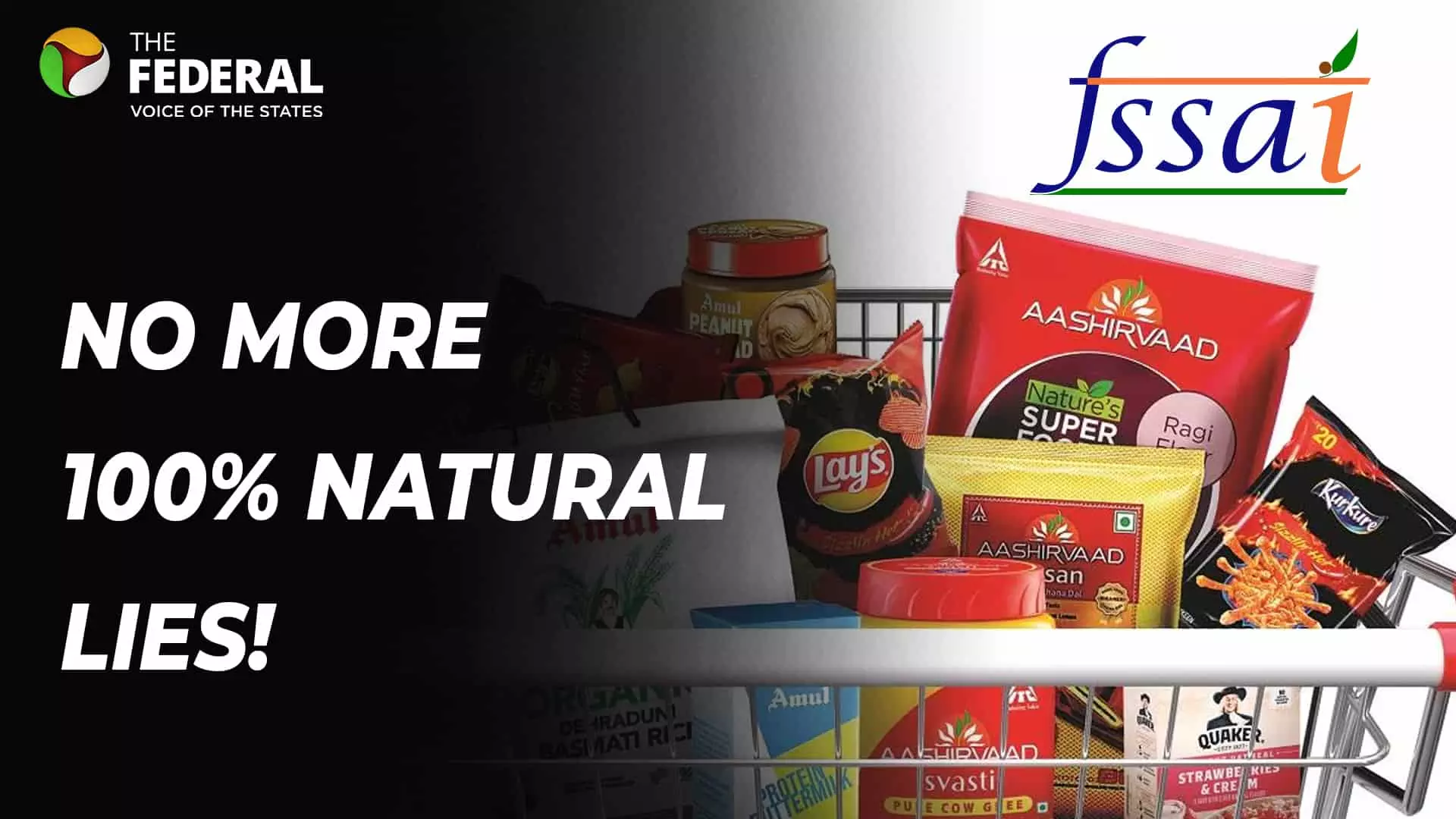
Watch: Why FSSAI is cracking down on ‘100 pc’ claims of food products
Food safety watchdog says these claims are misleading because there’s no legal definition for what “100 per cent” really means under Indian food safety laws

The Food Safety and Standards Authority of India (FSSAI) has officially banned the use of phrases like “100 per cent pure,” “100 per cent fat free,” and “100 per cent natural” on food packaging, advertisements, or promotional materials.
According to the food safety watchdog, these claims are misleading because there’s no legal definition for what “100 per cent” really means under Indian food safety laws.
Misleading the consumer
Brands have long marketed products using bold “100 per cent" claims that suggest their superiority, even if the food is filled with preservatives, chemicals, or additives. The FSSAI’s decision aims to curb this deceptive tactic and ensure that consumers are not swayed by vague, unverifiable claims.
T Arulselvam, Chairman of the Tamil Nadu Consumer Education Foundation, strongly supported the move. “Packaged juices and drinks claim to be ‘100 per cent natural’ and sell at high prices... but the truth is, preservatives and chemicals are definitely added,” he told The Federal. “It’s a dishonest marketing trick and we welcome FSSAI’s move to stop it.”
Educating the buyer
The ban is part of a broader push to encourage Indian consumers to read labels carefully and avoid being influenced by flashy language.
“Just because it’s got shiny packaging and big words doesn’t mean it’s the real deal,” Arulselvam added. “Consumers have the right to choose. But choose smart. Pick certified products, not just flashy ones.”
This change is expected to prompt brands to be more transparent in their ingredient disclosures and back their health claims with certification or regulatory approval.
The FSSAI ruling is also a wake-up call for consumers to not fall for attractive packaging and exaggerated buzzwords. The next time you see a juice, snack, or so-called “all-natural” product with bold “100 per cent” printed on it, remember: it’s not proof of quality.
So flip that pack. Read the label. Because the new rule is loud and clear — no more “100 per cent” bluff.
The content above has been transcribed from video using a fine-tuned AI model. To ensure accuracy, quality, and editorial integrity, we employ a Human-In-The-Loop (HITL) process. While AI assists in creating the initial draft, our experienced editorial team carefully reviews, edits, and refines the content before publication. At The Federal, we combine the efficiency of AI with the expertise of human editors to deliver reliable and insightful journalism.

